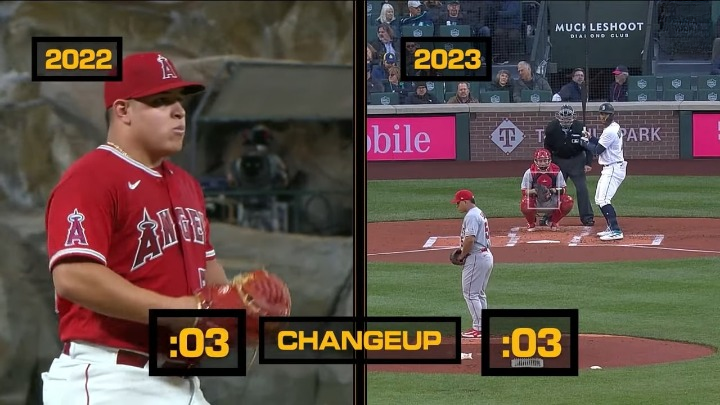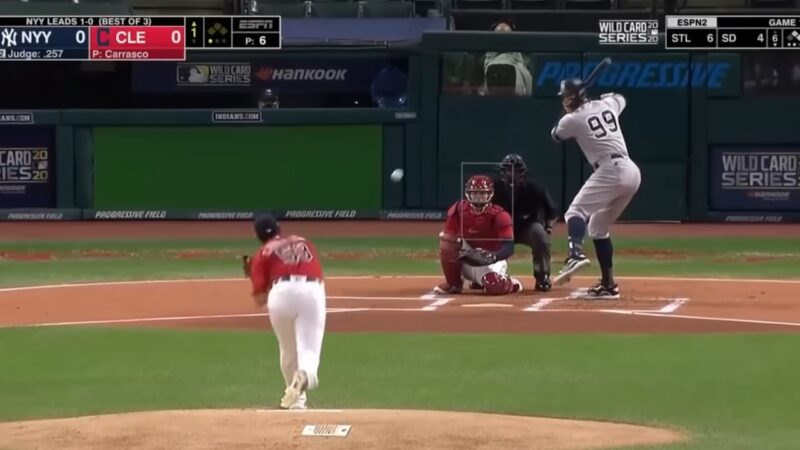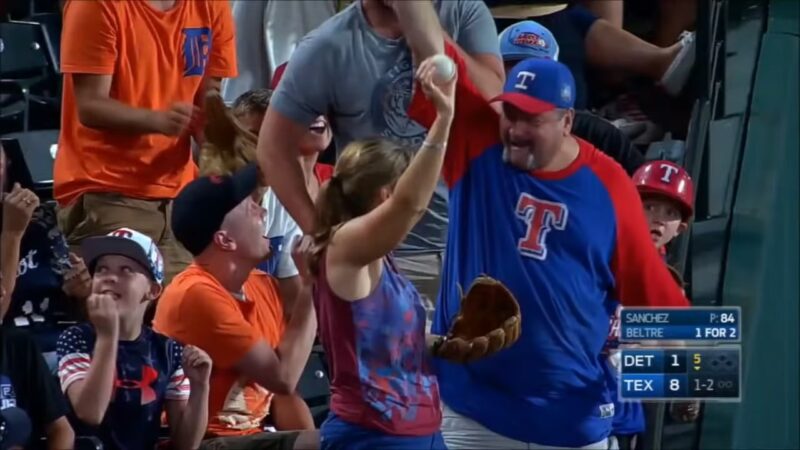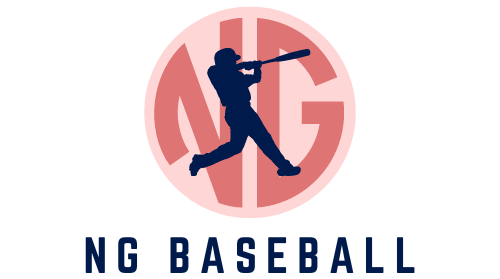Ah, baseball! It’s often called America’s pastime, and for good reason. There’s something truly magical about sitting in a stadium, hot dog in hand, watching the sunset as the game unfolds. But have you ever wondered, amidst the cheers and the tension, just how long a typical baseball game lasts? Well, you’re not alone. Let’s embark on this journey together.
Baseball, unlike many other sports, doesn’t have a fixed clock. This means that while some games might wrap up in a brisk two and a half hours, others might stretch on for four hours or more. Intriguing, right?
Pro Tip: If you’re planning to attend a game, always check the weather forecast and bring some snacks. You never know how long you’ll be there!
Standard Game Structure
At its core, a baseball game is divided into innings. Think of them as chapters in a book. Each inning has two halves: the top and the bottom. In the top half, one team bats while the other team fields, and then they switch roles for the bottom half. A standard game has nine innings, but here’s the catch: the game doesn’t end by time but by innings played.
Now, if both teams have the same score at the end of those nine innings, we head into what’s called “extra innings.” It’s like overtime but in baseball style. And this, my friend, can make the game go on for quite a bit longer.
Fun Fact: The longest Major League Baseball game in terms of innings was a game between the Boston Braves and the Brooklyn Robins in 1920. It lasted 26 innings!
Factors Affecting Duration
In a match where both team’s pitchers are on fire. They’re striking out batters left and right, and hits are a rare sight. This kind of game, known as a pitching duel, can be quicker since fewer players are reaching bases and scoring.
On the flip side, when batters are having a field day and runs are being scored left, right, and center, games tend to be longer. More hits, more runs, and more action on the field mean more time.
Each pitcher has a certain number of pitches they can throw effectively in a game. When they reach that limit, they’re usually replaced. This strategy, combined with the time taken for each pitch, can add to the game’s duration.
Finally, Mother Nature doesn’t always cooperate with our love for baseball. Rain, lightning, or even strong winds can delay a game or even lead to its suspension. And yes, this can significantly affect how long a game lasts.
Historical Trends
Back in the day, baseball games were generally quicker. But as strategies evolved and commercial elements entered the scene, game durations began to change. Today’s games, on average, are longer than those played a century ago.
While we mentioned the longest game in terms of innings earlier, did you know that the longest-timed game was played in 1984 between the Chicago White Sox and the Milwaukee Brewers? It lasted a whopping 8 hours and 6 minutes! On the other hand, the shortest game ever was between the New York Giants and the Philadelphia Phillies in 1919, wrapping up in just 51 minutes.
Fun Fact: The reason for the short duration of the 1919 game? Both teams had trains to catch!
Strategies to Speed Up or Slow Down Games

Pitch Clocks and Pace of Play Initiatives
You might have heard about the pitch clock. It’s a relatively new addition, aimed at speeding up the game. The idea is simple: give pitchers a set amount of time between pitches. If they take too long, they could face penalties. This not only keeps the game moving but also adds a layer of strategy for the pitcher.
Pitcher’s Mindset: Working Quickly vs. Deliberately
Some pitchers work at a rapid pace, believing it gives them an edge by not allowing batters to settle. Others take their sweet time, using the pause to strategize or even to throw off a batter’s rhythm. This personal tempo can influence the overall length of the game.
The Art of Time Management in the Field
It’s not just about the pitcher and batter. Fielders adjusting positions, managers making strategic decisions, and even base runners taking their lead—all of these can add minutes to the game. Mastering the art of time management on the field is crucial for both teams.
Pro Tip: If you’re a budding baseball player, practicing quick decision-making can be as valuable as physical training!
The Human Element

Umpires
Umpires, the guardians of the game’s rules, have a significant say in its pace. Their judgment on balls, strikes, and plays can either speed up the action or lead to longer discussions and even disputes.
Managerial Decisions
Managers are like chess players, always thinking several moves ahead. Their decisions, from pitching changes to challenging calls, play a pivotal role in the game’s flow. A manager who frequently switches pitchers or employs a lot of pinch-hitters can inadvertently extend the game’s duration.
Fun Fact: Some managers are notorious for their lengthy games due to their meticulous, strategic approach!
Commercial Breaks
Ah, the age of television! While it has brought the game to millions worldwide, it’s also introduced commercial breaks. These breaks, especially during high-profile games, can add a significant chunk of time. It’s a dance between keeping viewers engaged and maximizing advertising revenue.
The Quest for a Balance Between Revenue and Fan Experience i’s a delicate balance, indeed. While commercials bring in revenue, there’s a risk of alienating fans if there are too many interruptions. Leagues and broadcasters are constantly seeking that sweet spot where profits meet fan satisfaction.
Fan Perspectives

For the casual fan, a quicker game might be more appealing—something they can enjoy without committing an entire afternoon or evening. But for the die-hard enthusiasts, every minute is a treat. They relish the nuances, the strategies, and the suspense that a longer game can offer.
What Fans Value Most: The Game or the Experience?
Is it about the final score or the journey to get there? For some, it’s the thrill of the game, the unpredictability, and the drama. For others, it’s about the whole experience: the camaraderie with fellow fans, the stadium atmosphere, and even the food!
Pro Tip: If you’re new to baseball, try watching a game both at home and in a stadium. The experiences can be vastly different, and you might just find your preference!
FAQ
Why don’t baseball games have a fixed time like soccer or basketball?
Baseball operates on innings rather than a set clock, emphasizing strategy and play outcomes over strict time limits.
How do tie games get resolved in baseball?
Baseball uses extra innings to resolve ties, where teams continue to play additional innings until a winner emerges.
Is there a maximum number of innings a baseball game can have?
Technically, no. A game can continue with extra innings as long as needed to determine a winner.
Do all baseball leagues worldwide follow the same game duration rules?
While the basic structure is similar, different leagues might have variations in rules that can influence game duration.
How do playoffs or championship games affect baseball game durations?
Playoff games can be longer due to the higher stakes, more strategic plays, and potential extra innings.
Are there any proposals to shorten baseball games in the future?
Yes, there are ongoing discussions about pace-of-play initiatives, like pitch clocks, to potentially shorten game durations.
Conclusion
Baseball, with its rich history and intricate nuances, offers a unique viewing experience unlike any other sport. The duration of a game, influenced by various factors, adds to its charm and unpredictability.
Whether you’re a seasoned fan or a newcomer, understanding the elements that dictate the game’s length enhances appreciation. So, the next time you settle in for a match, remember: it’s not just about the innings, but the stories they tell.







